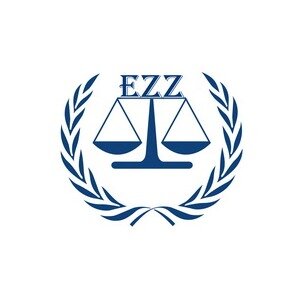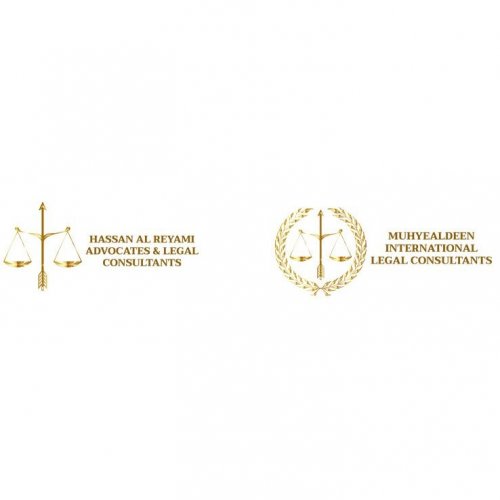Best Debt & Collection Lawyers in Abu Dhabi
Share your needs with us, get contacted by law firms.
Free. Takes 2 min.
List of the best lawyers in Abu Dhabi, United Arab Emirates

The Black Robe For Legal Consultancy & Debit Collection
1 hour Free ConsultationAbout Debt & Collection Law in Abu Dhabi, United Arab Emirates
The field of Debt & Collection law in Abu Dhabi, United Arab Emirates (UAE) is a significant domain involving a set of regulations mandating how creditors can seek payment from debtors. These laws aim to balance individuals’ rights with the interests of creditors. In Abu Dhabi, like other parts of the UAE, the primary statutes controlling such issues are the UAE Civil Code, the UAE Commercial Code, and the UAE Bankruptcy Law, among other regulations.
Why You May Need a Lawyer
Individuals and businesses may find themselves in a position where they need legal assistance with debt and collection issues. Examples include disagreement over outstanding amounts, being unable to meet debt payments, disagreement on the enforcement actions taken by the creditor, or dealing with legal proceedings initiated by the creditor. A lawyer is essential in these scenarios as they can provide advice, facilitate discussions with creditors, and represent the client in any necessary legal proceedings.
Local Laws Overview
The UAE Civil Code outlines fundamental principles regarding debt and credit management, including aspects such as the process of contract formation and execution. The UAE Commercial Code governs commercial transactions, while the UAE Bankruptcy Law provides a legal framework for cases of insolvency. Additionally, the UAE has strict laws about bounced cheques, which can lead to serious penalties, including imprisonment. The new Bankruptcy Law enacted in 2016 was seen as a significant move as it focuses more on the rehabilitation of debtors rather than punishing them, thus, encouraging transparency and financial stability.
Frequently Asked Questions:
1. Can I be imprisoned for not paying a debt in Abu Dhabi?
Being unable to pay a debt does not always lead to a jail term. However, if the debt involves a bounced cheque, UAE law mandates strict penalties, including possible imprisonment. The situation can be different with the influence of the new Bankruptcy Law.
2. What options are available if I can't repay my debts?
If a person is unable to repay their debts, they can declare bankruptcy under the UAE Bankruptcy Law, which allows for the possibility of debt restructuring and management but the process is quite complex and definitely requires a lawyer.
3. Can debt be written off in Abu Dhabi?
Debt can possibly be written off through a legal process such as insolvency or bankruptcy proceedings. However, it is not commonly done without attempting recovery processes first.
4. Can interest and fees continue to accumulate on a debt?
Yes, if stated in your agreement with the creditor, interest and fees can continue to accumulate on outstanding debts.
5. Can a creditor seize my assets?
Yes, if a court ruling approves, a creditor can seize assets or property to recover a delinquent debt.
Additional Resources
The Ministry of Justice and local courts in Abu Dhabi serve as important resources for individuals in need of legal advice in debt and collection law. Financial education centres such as the Emirates Foundation for Youth Development can also provide additional advice and support.
Next Steps
If you are in need of legal assistance in debt & collection, it's advised to contact a legal professional who is experienced in UAE law. A lawyer can guide you on the best course of action for your specific situation and can represent you in any potential legal proceedings. Also, remember to keep all relevant records, contracts, and correspondence, as these will be important for your case.
Lawzana helps you find the best lawyers and law firms in Abu Dhabi through a curated and pre-screened list of qualified legal professionals. Our platform offers rankings and detailed profiles of attorneys and law firms, allowing you to compare based on practice areas, including Debt & Collection, experience, and client feedback.
Each profile includes a description of the firm's areas of practice, client reviews, team members and partners, year of establishment, spoken languages, office locations, contact information, social media presence, and any published articles or resources. Most firms on our platform speak English and are experienced in both local and international legal matters.
Get a quote from top-rated law firms in Abu Dhabi, United Arab Emirates — quickly, securely, and without unnecessary hassle.
Disclaimer:
The information provided on this page is for general informational purposes only and does not constitute legal advice. While we strive to ensure the accuracy and relevance of the content, legal information may change over time, and interpretations of the law can vary. You should always consult with a qualified legal professional for advice specific to your situation.
We disclaim all liability for actions taken or not taken based on the content of this page. If you believe any information is incorrect or outdated, please contact us, and we will review and update it where appropriate.
















